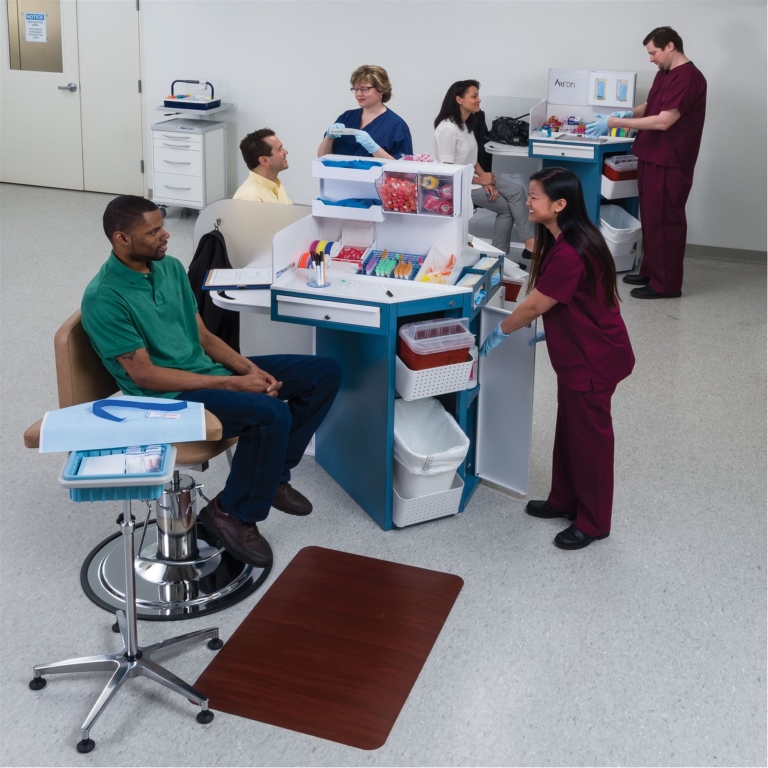Ultimate Guide to Passing the National Phlebotomy Certification Test: Tips & Exam Insights
If you’re aspiring to become a certified phlebotomist, passing the national phlebotomy certification exam is a crucial step toward launching your healthcare career. This comprehensive guide will walk you through effective preparation strategies, common challenges, and insider tips to ensure you pass the exam with confidence. Whether you’re a student just starting your journey or a seasoned professional seeking recertification, this article provides valuable insights to help you succeed.
Why Is Passing the National Phlebotomy Certification Test Crucial?
Obtaining national certification as a phlebotomist not onyl validates your skills and knowledge but also significantly boosts your employability and earning potential. Accredited certification demonstrates your commitment to professionalism, safety, and quality care, wich are essential in healthcare settings such as hospitals, labs, and clinics.
Moreover, many states require certified phlebotomists to practice legally, and some employers prefer hiring certified professionals. Preparing effectively for the certification exam is therefore a vital step in advancing your healthcare career.
Understanding the Phlebotomy Certification Exam
What Does the Exam Cover?
The national phlebotomy certification exam typically evaluates your knowledge and skills in areas such as:
- Proper venipuncture techniques
- Patient safety and infection control
- specimen handling and processing
- Medical terminology
- Dialog and professionalism
- Legal and ethical considerations
Exam Format and Question Types
The exam usually consists of multiple-choice questions, ranging from 100 to 150 items. You’ll have a specified time limit-usually around 2 hours-to complete the test. Some exams include scenario-based questions testing real-world application skills.
Effective Strategies to Prepare for the Phlebotomy Certification Exam
1. Review the Exam content Outline
Start by thoroughly understanding the exam blueprint provided by certifying organizations like the National Healthcareer Association (NHA), American Society for Clinical Pathology (ASCP), or National Phlebotomy Association (NPA).Focus your study on key areas outlined in the content outline.
2. Obtain Quality Study Materials and Practice Tests
Invest in reputable textbooks, online courses, and practice exams. Taking practice tests helps familiarize you with the exam format and identify weak areas requiring further review. Many organizations offer sample questions and study guides tailored to the current exam version.
3. Develop a Study schedule
Create a realistic study plan that spans several weeks to avoid cramming. Dedicate specific days to different topics like anatomy,specimen collection,and legal considerations. Consistent study improves knowledge retention and reduces pre-exam anxiety.
4. Join Study Groups or Prep Classes
Collaborating with peers provides motivation, clarifies doubts, and offers diverse perspectives on complex topics. Many community colleges and online platforms offer prep classes designed specifically for phlebotomy certification.
5.Focus on Practical Skills and Clinical Experience
Hands-on practice is crucial. Ensure you are agreeable with venipuncture, capillary puncture, and proper specimen labeling and handling. Review your clinical experiences to reinforce your skills and confidence.
Tips & Best Practices During the Exam
- read each question carefully before selecting an answer.
- Eliminate obviously wrong choices to improve your odds.
- Manage your time wisely-don’t spend too long on difficult questions.
- Maintain a calm and focused mindset to reduce anxiety.
- Watch for keywords like “best”, ”most appropriate”, or “initially” which guide the correct response.
Common Challenges and How to Overcome Them
Understanding Complex Medical Terminology
Use flashcards or mnemonic devices to memorize key terms.Break down complex words into understandable parts to aid retention.
Managing Test Anxiety
Practice relaxation techniques like deep breathing or visualization. Adequate preparation also boosts confidence and reduces nerves.
Time Management During the Test
Prioritize easier questions first, then tackle more challenging ones. Keep track of your time to ensure you answer all questions.
Practical Tips & Benefits of Certification
- Improved Job Prospects: Certification makes you stand out in a competitive job market.
- Higher Earning Potential: Certified phlebotomists frequently enough earn more than non-certified counterparts.
- Professional Growth: Certification supports ongoing education and career advancement.
- Recognition & Credibility: Validates your skills and commitment to healthcare excellence.
Case Study: Success Story of a Certified Phlebotomist
| name | Journey | Tip |
|---|---|---|
| Jane D. | Completed a certified phlebotomy programme,studied diligently,and passed the NHA exam on her first attempt. | Utilize practice exams and focus on hands-on experience for confidence. |
| Mark S. | Struggled with test anxiety but improved through relaxation techniques and consistent study schedule. | Break study sessions into manageable chunks and maintain a positive mindset. |
First-Hand Experience: Reliable Resources & final Advice
Many triumphant test takers recommend resources such as the National Phlebotomy Certification Study Guide, online practice exams, and local training programs. Remember,practical skills training is as essential as theoretical knowledge. Attend lab sessions,seek feedback,and don’t hesitate to ask mentors or instructors for guidance.
maintain a positive attitude, stay consistent in your preparation, and believe in your abilities. With dedication and strategic study, you’ll be well on your way to acing the national phlebotomy certification exam.
Conclusion
Passing the national phlebotomy certification test is an attainable goal with the right approach. By understanding exam requirements, preparing thoroughly, practicing hands-on skills, and adopting proven test strategies, you can increase your chances of success significantly. Remember, certification opens doors to rewarding healthcare careers, so invest in your preparation today.Good luck on your journey to becoming a certified phlebotomist!
